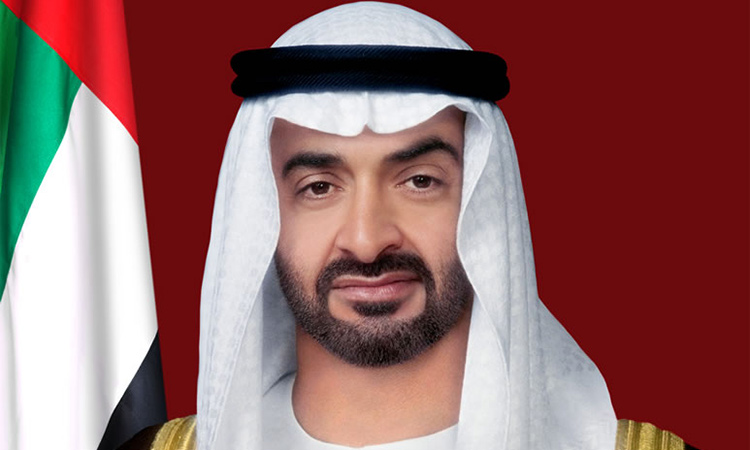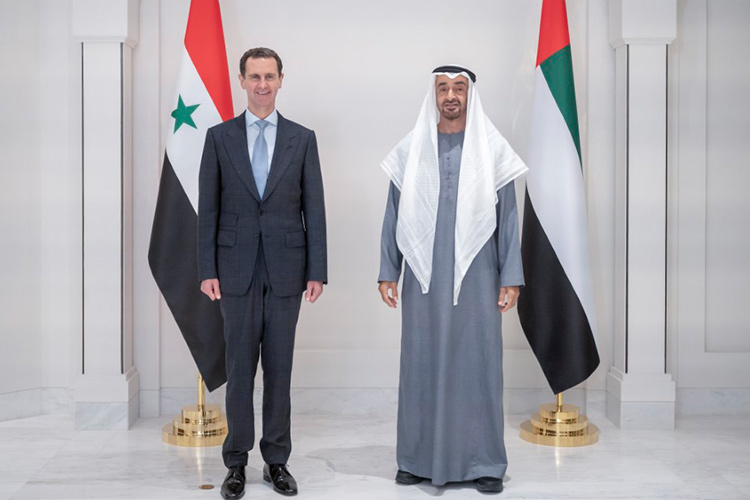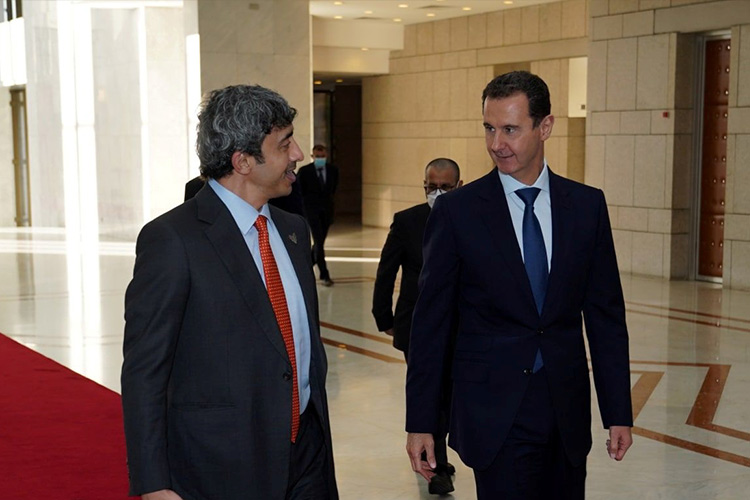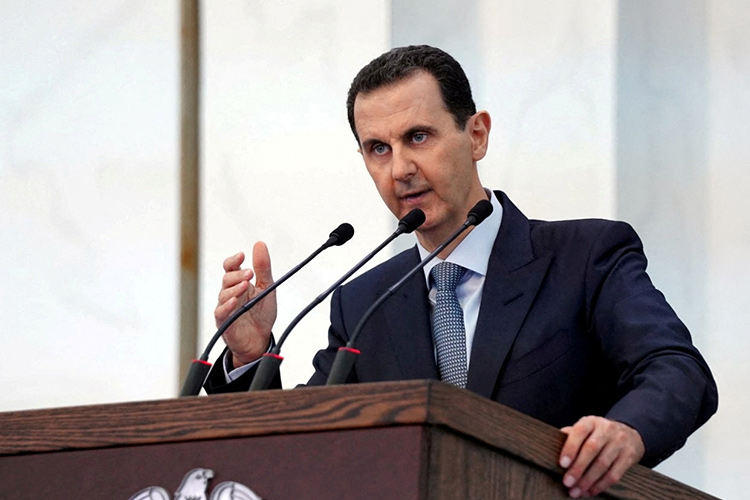UAE President’s positive call to Bashar Al-Assad

Sheikh Mohamed Bin Zayed Al Nahyan welcomes Bashar Al Assad at Qasr Al Watan in Abu Dhabi. Reuters
The UAE President through his statement has made it clear that Arab unity is important for the prosperity and stability of the region than any other consideration. The point was reiterated by Dr. Anwar Bin Mohammed Gargash, the diplomatic adviser to His Highness the President of the UAE. He said, “The UAE’s position is clear regarding the need for Syria to return to its surroundings by activating the Arab role, and this was confirmed by His Highness Sheikh Mohamed Bin Zayed during his meeting today with President Bashar Al-Assad.”
Dr Gargash elaborated the UAE’s position: “The UAE’s approach and effort towards brotherly Syria are part of a deeper vision and a broader approach aimed at strengthening Arab and regional stability overcoming difficult years of confrontation.”
The civil war that broke out in 2011 has not only caused immense suffering to millions of Syrians in the country and in the refugee camps in Turkey and other places, but it has given opportunity for outside powers to create greater chaos in and around Syria. It has been no secret that the United States has been opposed to the Bashar Al-Assad government, and Washington believed that the 2011 uprising would make for a regime change. It has obviously underestimated the strength of the Assad government. Meanwhile, Russia had provided support to the Assad government to defeat the Daesh forces in the northwest of the country. But it has caused huge turbulence, affecting the lives of the people and impoverishing its economy. UAE’s position is a clear indication that an internally volatile Syria affects regional stability, including the economy, and that the situation cannot be allowed to continue.
There is the general perception that there are huge divisions in the Arab world and that they would not ever come together to forge unity. The UAE’s call is an effective message to counteract this perception. It is of course not an easy task. The differences of opinion would not vanish overnight. But it is a reminder that it is necessary to weigh the cost of disunity is quite high to pay. There is also the implication that President Assad will have to reach to his opponents at home and to his critics abroad. It cannot be seen as the victory of one and defeat of the rest. Syria is a well-endowed country in terms of its human resources and the civil war has been a heavy blow to the talented and resourceful Syrians. President Assad must resolve the differences, and create the consensus needed to heal the internal wounds of Syria’s civil society.
The UAE President’s message to President Assad is that the UAE and others would support him in his efforts to rebuild a politically vibrant Syria. Assured of the tremendous goodwill that the UAE President has extended to him, President Assad should be able to begin the process of reconciliation. Once there is a rapprochement between Syria and its neighbours, there will be less room for other powers to stoke trouble in Syria and take advantage of Arab disunity. This is indeed the right time for President Assad to bring Syria back to its regional moorings.







